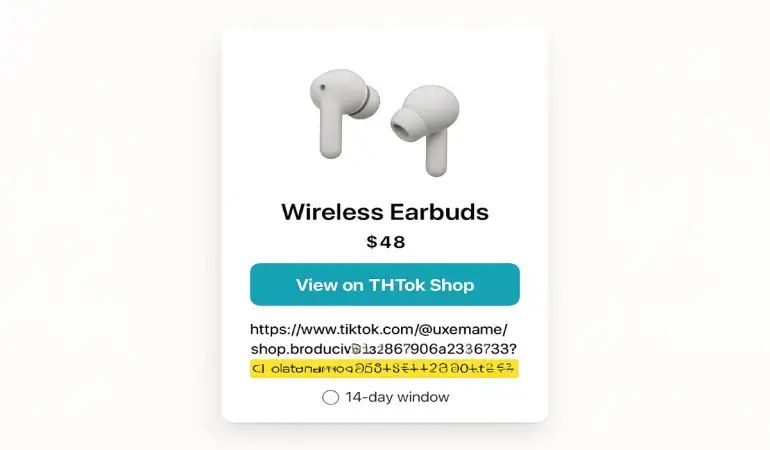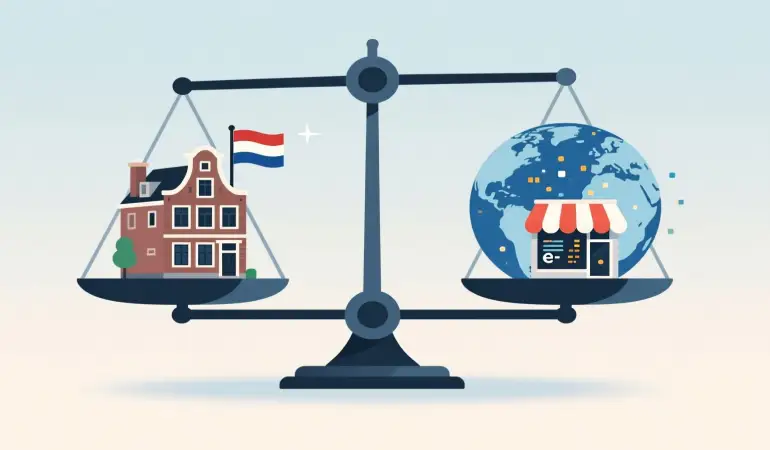A Clear Path Through the Noise of Affiliate Marketing
Find clarity in affiliate marketing. Unbiased, verifiable program profiles, clean links, expert Q&A, and calm guidance to compare and choose with confidence.
November 09, 2025 07:31
A Calm Introduction to an Overheated Topic
The conversation around affiliate marketing often feels like a crowded room with everyone talking at once. Voices lift. Promises multiply. Links fly. In the midst of this commotion, it is strangely difficult to hear the quiet signal buried beneath the noise.
A calmer view helps. Take two steps back and the scene looks less like a frenzy and more like a set of repeating patterns. The same excited posts. The same questions about legitimacy. The same confusion when someone’s recommendation turns out to be little more than a sales pitch. In an overheated topic, the cool air of clear information changes everything.
People deserve clarity. Programs deserve fair evaluation. Trust deserves protection.
The Noisy Marketplace and the Ponzi Myth
Walk through any forum, group, or feed dedicated to affiliate programs and the noise is immediate. Endless threads invite you to “join now,” “don’t miss out,” “start earning today.” Most of those posts carry a single purpose: get you to click a link. It is easy to understand how a constant stream of self-interested promotion can make the entire field appear suspect to newcomers.
The noise fuels a myth. If everyone is selling the act of selling, is the whole thing a shell game? Is affiliate marketing a Ponzi scheme dressed up as an opportunity? Those questions echo loudly because too much of the conversation centers on promotion, not information.
The answer is simpler than the debate suggests. No, affiliate marketing is not a Ponzi scheme. It is a commercial model where a publisher refers an audience to a product or service, and the publisher earns a commission when value is created. Done with real companies, real products, and real customers, it works the same way any other referral system works. The problem is not the model. The problem is the noise.
When Promotion Eclipses Information
Promotion has a purpose. But when promotion becomes the only language spoken, important details get erased. Terms vanish behind slogans. Company history disappears under urgency. Payout structures, support quality, tracking reliability, and product fit—these are the quiet facts that should guide decisions. They rarely trend in comment threads.
And so people join, then regret. The details they needed were there, just buried under enthusiasm. The result looks like chaos from the outside and disappointment from the inside.
The Real Cost of Choosing Wrong
Choosing an affiliate program is not a harmless experiment. Each decision ties you to a specific brand, team, and set of promises. If the match is poor, the loss is not abstract. It is measured in days and dollars, confidence and credibility.
Bad choices linger. They reroute your focus and sour your outlook. The time you spend recovering from a misstep is time you could have spent building.
Time, Money, Energy and Audience Trust
Time disappears first. Setting up assets, crafting content, tuning campaigns—these hours do not come back when the program flakes on tracking or disappears into slow support queues.
Money follows. Hosting, tools, ads, creative work—costs accumulate while weak programs underperform. Even modest monthly fees feel heavy when the return stalls.
Energy drains quietly. Enthusiasm fades when a partner fails to pay fairly or respond clearly. Work feels heavier. Momentum dissolves.
Then comes the worst loss of all: audience trust. Recommending a poor product damages the bond you have with readers, viewers, and customers. Trust, once dented, does not snap back. It rebuilds slowly, if at all.
What Good Looks like in Affiliate Programs
Good programs do not hide. They feel orderly. Their terms read like they were written for humans. Their product or service solves a real problem that real people care about. Results align with promises.
Support shows up on time. Reporting is understandable. Payouts run on schedule. Questions get answers. Not perfect, but professional.
Solid Products, Reliable Companies, Dedicated Teams
Three pillars hold up strong affiliate partnerships:
Solid products or services: Clear benefits, honest quality, documented use cases, and a track record with customers. If customers love it, referrals make sense.
Reliable companies: Real addresses, real leadership, real compliance, and steady operations. A company that takes care of its customers usually takes care of its partners.
Dedicated affiliate teams: People who understand attribution, tracking, creative needs, and communication rhythms. Not just a mailbox—an active team. You feel it in the response time and the quality of guidance.
These pillars create calm. They make planning possible.
A Compass for Clarity and Trust
In a noisy space, a compass is not a metaphor. It is a necessity. Decisions improve when you rely on consistent, verifiable, and quietly presented information. That is the promise here: an orientation tool built from facts and protected from hype.
The goal is simple. Replace guesswork with clarity. Replace persuasion with evidence. Replace confusion with confidence.
Unbiased Information You Can Verify
Bias creeps in easily when affiliate links and opinions mix with program profiles. You read a glowing review and wonder what sits behind it. Is the praise earned, or is it simply the prelude to a commission?
The antidote is structure. Profiles that are designed to present facts first—terms, cookie windows, commission details, restrictions, payment schedules, support channels, company background—give you what you need to compare without being nudged.
Facts over Opinions in Program Profiles
Opinions have a place, but they should never lead you to a decision on their own. Here, the information sections are grounded in verifiable data points. If something is stated, you should be able to check it. If a feature is claimed, it should appear in the program’s own materials or be confirmed by a representative.
This separation matters. Facts form the spine. Experiences and perspectives can gather around that spine without distorting it.
Radical Transparency in Links and Conversations
Transparency sounds nice until it meets the friction of incentives. The cleanest test is also the simplest: are there affiliate links inside the materials that are supposed to guide your choice?
If not, you can relax. The conflict of interest has been removed. You can focus on the program, not the pitch.
Clean Links and Moderated Comments
Clean links mean exactly that: links in information sections and comments carry no affiliate tracking. Nothing hidden. Nothing coded to steer you.
Moderation completes the picture. Comment areas are not billboards for spam or disguised promotions. The space remains useful, readable, and safe for genuine questions. When the room is tidy, conversation improves.
Experienced Voices and Real Q&A
No single person has tried every program. Pretending otherwise creates false authority. Better to invite people who have genuine experience with specific programs and let them speak plainly about what went right and what went wrong.
That candor is rare. It is also indispensable.
Insights from Seasoned Affiliates and Merchants
Experienced affiliates know where friction appears: tracking inconsistencies, unresponsive account managers, vague program updates, or creative restrictions that block campaigns. They also know where excellence hides: flexible terms, proactive support, accurate reporting, and paid-on-time reliability.
Merchants carry a different view. They can explain how they attribute sales, what compliance means in practice, what traffic sources convert, and how they manage fraud. When both sides converse openly, newcomers learn faster and veterans refine their approach.
Q&A keeps those threads useful. Real questions, honest responses, and the grounding effect of specificity. “How long does approval take?” “What is your policy on coupon sites?” “Do you support server-to-server tracking?” Answers like these shape expectations and guide decisions.
How to Use Our Resource to Decide with Confidence
Good information only helps if you put it to work. A calm process beats a rushed click every time.
Start by defining your audience and channel. What problem do they have? What format do you use to reach them—email, video, written guides, live events? Now match those realities to programs with compatible products and terms. Look for indicators of reliability, not just payout size.
Newsflash: size is not everything.
Read the profile facts, then skim the discussions. Note recurring themes in comments from experienced affiliates. If a merchant participates and answers directly, give that weight. Active management often predicts smoother operations later.
Compare Shortlist and Move Forward
Create a shortlist of three to five programs that align with your niche and values. Compare the specifics side by side:
Commission type and rate
Cookie duration and attribution model
Approval process and typical timelines
Creative assets and promotional guidelines
Support responsiveness and contact methods
Payment methods and schedule reliability
Product fit and customer satisfaction indicators
If a question remains, ask it publicly in the Q&A where others can learn too. Move forward with the best match, test thoughtfully, and keep notes. Revisit results after a defined period. Adjust without drama.
Small steps, steady progress.
The Healthier Ecosystem We Are Building
Healthy systems start with shared standards. Facts before opinions. Clean links before commissions. Real names behind real answers. These small decisions compound into trust.
The aim is an ecosystem where affiliates choose well, merchants communicate clearly, and audiences receive recommendations that genuinely help. Less shouting, more signal. Less pressure, more proof.
It feels different when the noise fades. You can hear yourself think. You can see the path ahead. And you can choose the programs that deserve your time, your energy, and your audience’s attention.
Quiet confidence replaces confusion.
That is the point.




